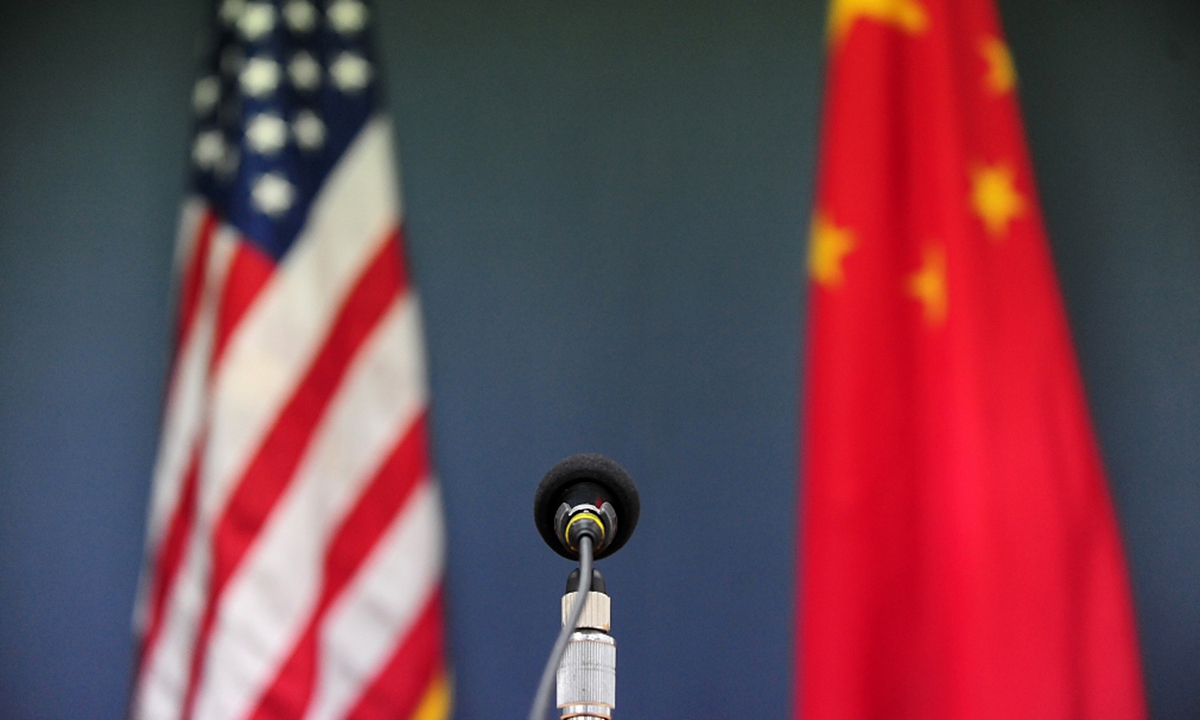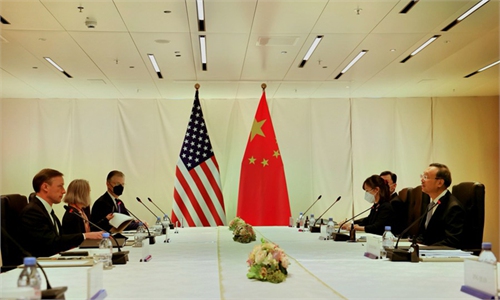China lodges representations with US on lifting additional tariffs, sanctions as senior officials hold ‘pragmatic, candid’ talks over trade

Senior Chinese and US officials conducted "candid, pragmatic and constructive" exchanges on trade, the Ministry of Commerce (MOC) announced on Saturday, and the Chinese side lodged representations on lifting additional tariffs and sanctions.
The latest communication signaled a relatively positive indication, which showed that despite their differences, both sides are willing to solve their problems through dialogue, experts said.
Chinese Vice Premier Liu He, a member of the Political Bureau of the Communist Party of China Central Committee and chief of the Chinese side of the China-US comprehensive economic dialogue, held a video call with US Trade Representative Katherine Tai on Saturday, during which the two agreed to keep communicating in an attitude of equality and mutual respect, the MOC said in a statement published on its official website.
During the conversation, the two sides conducted pragmatic, candid and constructive exchanges on three issues:
First, China-US economic and trade relations are of great importance to the two countries and the world at large and bilateral economic and trade exchanges and cooperation should be strengthened.
Second, the two sides exchanged views on the implementation of the China-US economic and trade agreement.
Third, both sides expressed their core concerns and agreed to resolve each other's legitimate concerns through consultation.
The Chinese side lodged representations on canceling additional tariffs and sanctions and expounded its position on issues such as China's economic development model and industrial policies, read the statement.
The two sides agreed to continue to communicate in an attitude of equality and mutual respect so as to create favorable conditions for the healthy development of bilateral economic and trade relations and the recovery of the world economy.
While the statement didn't mention the specific details on the talk, the two sides' different accounts about the talk still reveal much differences when it comes to specific issues.
The US complaints about China's trade and subsidy practices are now focused on accusing China of "doubling down on its authoritarian state-centric approach" and being "resistant to addressing our structural concerns," Reuters reported on Saturday, citing a USTR official.
However, both are apparently willing to manage their differences within a controllable range, and communication is certainly better than the vicious cycle of unilateral measures and retaliation, experts said. As there are still divergences, experts warned uncertainties remain in the bilateral trade.
"China apparently made clear its position on the issue during the talk, but it also shows that the two sides didn't reach a consensus on the topic," Gao Lingyun, an expert at the Chinese Academy of Social Sciences in Beijing who closely follows the trade issues, told the Global Times on Saturday.
"The issue surrounding China's trade practice and economic system will probably be a key topic to be discussed between the two sides in the future," He Weiwen, a former senior Chinese trade official, told the Global Times on Saturday.
The Saturday call marks the second time that Liu and Tai have spoken after their May talk. The conversation came after Tai on Monday pledged to exclude some Chinese imports from tariffs imposed under the former Trump administration.
China's position is to demand that the Biden administration to correct the mistake of the former administration, eliminating these additional tariffs once and for all, He noted.
"Exempting tariffs is a completely different thing from the cancellation of the additional tariffs, which should not be considered as a concession made by the US," he said.
He added that the US lifting its unilateral tariffs and sanctions against China is the basic condition to bring China-US relations back to the track of dialogue and cooperation.
In an interview with Phoenix TV on Friday, Chinese Ambassador to the US Qin Gang said that he has noted Tai mentioned that the US is now seeking to "recouple" with China, which has some positivity in it. The two sides can sit down and sort out the areas of "decoupling" and how to get them "recoupled."
According to Qin, at present, more than 900 Chinese entities have been included in various lists of restrictions by the US. Chinese companies face unfair treatment. In particular, the US is increasingly using "national security" as an excuse to suppress Chinese companies and restrict bilateral economic and trade exchanges and cooperation. If this is allowed to continue, it will cause more serious consequences.
Another topic of discussion during the Saturday talk is the implementation of the phase one trade agreement.
"Both sides need to be pragmatic and objective on the fulfillment of the phase one deal," Gao noted. "China has been fulfilling its part of purchasing, but the supply and logistics on the US side have caused trouble during the process."


